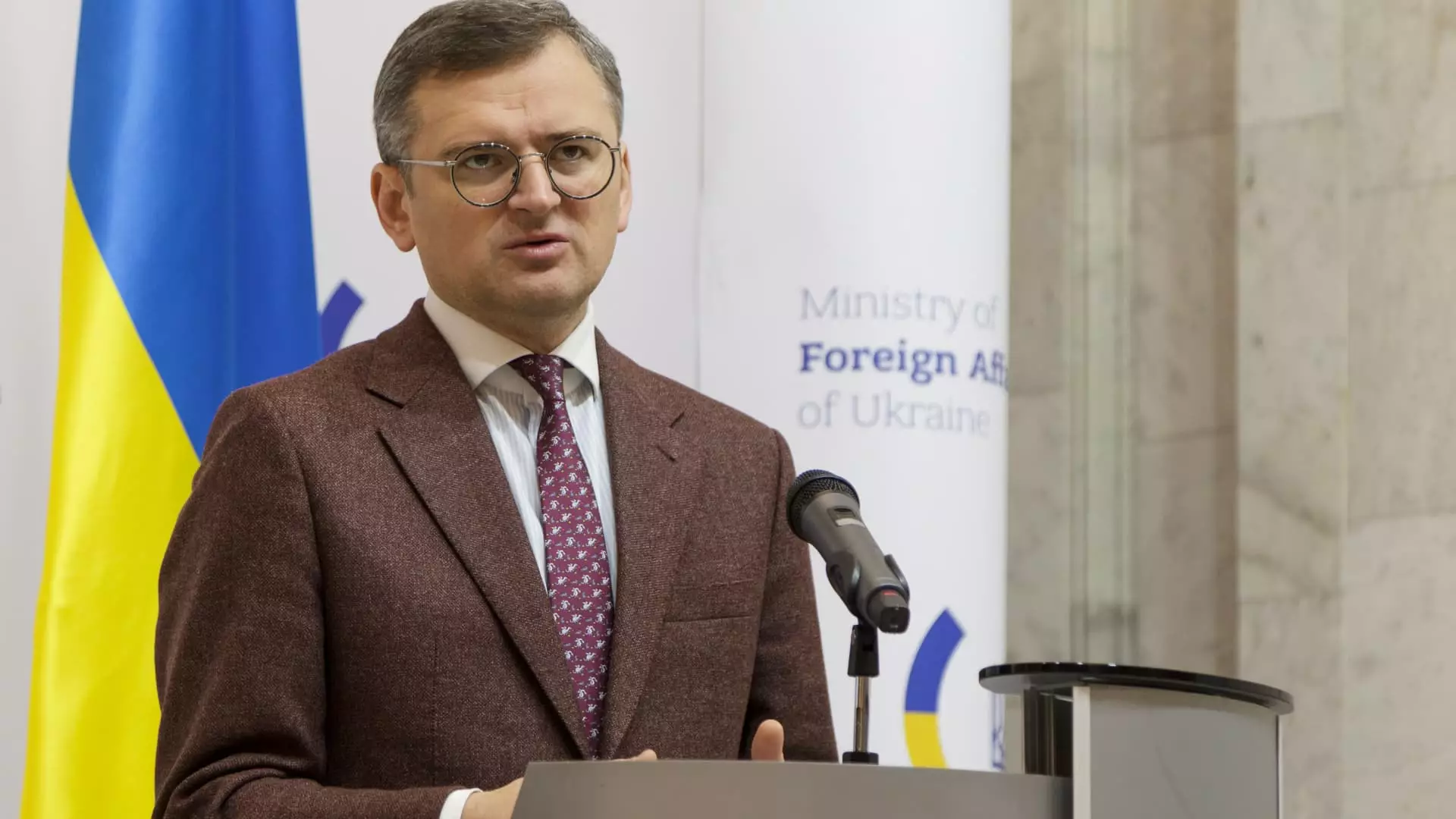As the conflict between Ukraine and Russia continues to escalate, a dire warning has emerged from former Ukrainian Foreign Minister Dmytro Kuleba regarding the potential fallout for the European Union if Ukraine does not succeed in its struggle against Russian aggression. In a discussion with CNBC, Kuleba presented a stark image of European cities plunged into chaos if Ukraine were to falter. His insights underscore the broader implications of this regional conflict, reverberating far beyond its borders.
Kuleba’s assertion that “if Ukraine fails, war will come to the streets of European cities” raises questions about the stability of Europe and the cycle of conflicts that might ensue. The geopolitical landscape has been charged with narratives of vulnerability and strength, especially concerning Russia’s capacity for warfare. Highlighting the recent retreat of Russian-backed Bashar al-Assad in Syria, Kuleba contends that while Russian President Vladimir Putin might lack the resources to sustain multiple military endeavors simultaneously, a victorious Ukraine could halt a potential future invasion towards Europe. This notion, while alarming, serves as a rallying cry for Ukraine’s allies to recognize the interconnectedness of European security and national sovereignty.
The concept of NATO membership, an elusive goal for Ukraine, dominates Kuleba’s argument. He delineates the necessity of formal NATO guarantees, distinguishing them from existing security assurances. While a ceasefire might seem achievable through delaying membership discussions, Kuleba warns that such a stopgap would not preclude future conflicts; it merely postpones a larger, unresolved issue. As tensions simmer, the sustained call for NATO integration underscores a critical preventative measure against further Russian expansionism.
Complications arise when examining the dynamics of NATO expansion from both a domestic and international lens. Many NATO member countries harbor hesitations concerning Ukraine’s accession, making unanimous approval a daunting challenge. This political intricacy casts a long shadow over Ukraine’s future as it strives for international support. In this context, Kuleba’s engagement with political figures, including incoming U.S. President Donald Trump, becomes pivotal. Trump’s potential return has sparked speculation about a shift in U.S. foreign policy towards Ukraine, and Kuleba views early discussions between Trump and Ukrainian President Volodymyr Zelenskyy as a beacon of hope.
Trump’s calls for a ceasefire may resonate with those yearning for peace; however, Kuleba emphasizes that the essence of any negotiations lies within Moscow’s willingness to negotiate sincerely. This insight reflects a broader understanding that real peace hinges on the fundamental motives driving Russian aggression. The Ukrainian government, led by Zelenskyy, must remain steadfast in its commitment to territorial integrity, forcing global leaders to acknowledge that any concession that undermines Ukraine’s constitution could derail not only its sovereignty but also the legitimacy of peace processes.
Recent developments further complicate the landscape. Ukraine’s response to ongoing Russian provocations underscores the volatile nature of the situation. Following significant missile and drone strikes on its energy infrastructure, Ukrainian officials maintain that they cannot afford to remain passive. Kuleba insists on a reciprocal escalation of force, painting a compelling image of resilience amid adversity. The narrative of Ukraine as a buffer against further Russian expansion adds an intriguing layer to the broader discourse on European security.
As NATO grapples with its strategic role, the intricacies of U.S. policies under different administrations will undeniably influence the dynamics at play. Critique of the Biden administration’s military aid and direct involvement in the conflict illuminates the complex web of alliances and national interests that shape the situation. Kuleba’s insistence that Ukraine must take a proactive stance invites further discussion on how nations can defend their sovereignty in an increasingly unpredictable world.
Former Foreign Minister Dmytro Kuleba’s insights provide a strong case for understanding Ukraine’s struggle not just as a national defense but as a pivotal point for European stability. The implications of Ukraine’s fight stretch far into the future, begging for urgent attention and collective resolve among European nations.

Leave a Reply